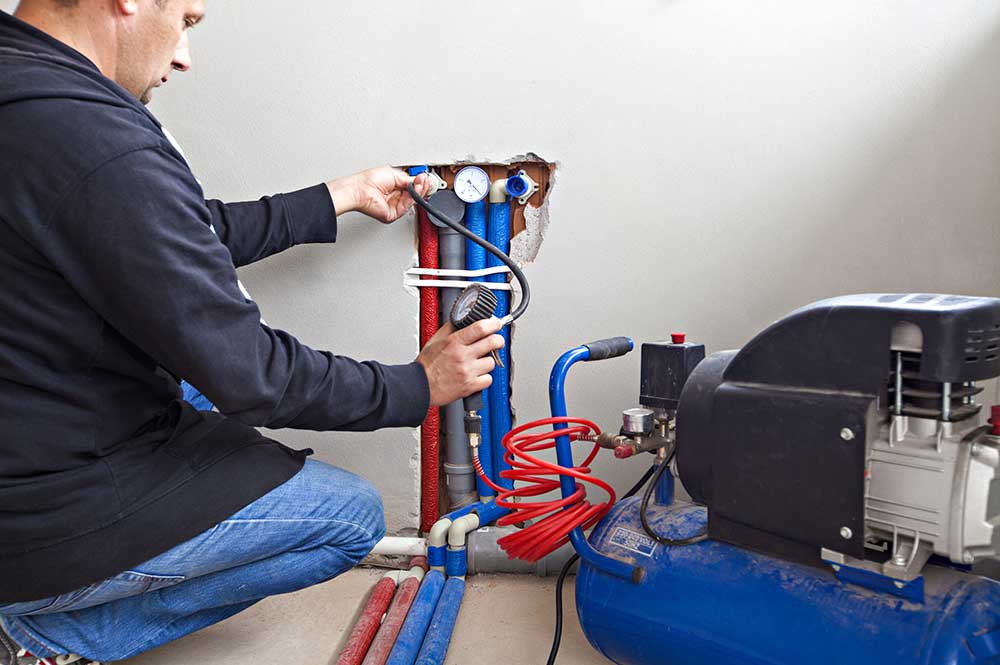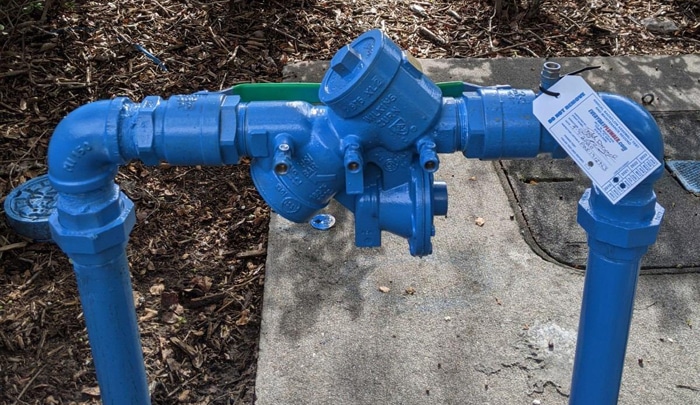On this page down the page you can locate lots of first-rate insight concerning Backflow Testing.

Yes, you require to backflow test your home's water supply to make sure that the water is free of contaminants and dangerous degrees of chemicals. Due to the equipment needed and also room for mistake, you need to not attempt to do heartburn screening on your own. We advise that you call a professional plumber every couple of years to evaluate your water.
What is Heartburn?
In short, backflow is when water moves upwards-- the contrary direction in the plumbing system. This is likewise referred to as "backpressure." When the water moves in this instructions, it can blend with unsafe toxins as well as present a danger.
What Causes Heartburn?
A normal cause of heartburn is a loss of water stress that causes the water to siphon back into the water system. An instance is cleaning a paint pail making use of a pipe. You load the paint bucket up with water, leaving the hose in the bucket. After a long time, there is a loss in water pressure as well as the hose pipe begins to suck the water back right into the water system. As you can envision, there are currently chemicals from the paint that are getting in the water, potentially posing a risk. Unfortunately, lots of people are not even familiar with backflow testing, however there are lots of reasons it's so crucial.
Backflow Screening is Called For by Legislation in Specific Cities
Depending on where you live, you may actually be called for by regulation to backflow examination your legislation. Iowa City keeps a document of all homes offered by the city's water supply.
You Can Avoid Backflow
Unsafe backflow is conveniently avoidable if you have an expert plumber install a heartburn device. If there is an active danger, the plumber will likewise test for backflow and also identify. The major purpose of a heartburn device is to avoid water from moving backward into your water supply. Plumbing professionals install the gadget on the pipelines in your house to make sure that the water just flows in the right instructions.
Heartburn Can Influence Both You and also Your City
Several cities establish backflow guidelines due to the fact that unsafe backflow can affect the public water system in addition to a solitary structure. Fortunately, modern-day cities have backflow devices in place that protect the water that comes from most residences and commercial properties. The actual hazard originates from watering systems, which can damage the supply of water with harmful fertilizers, manure, and various other chemicals.
Call a Plumber to Examine for Backflow Before It is Too Late
A plumbing business can promptly check your house's water to identify if there are any type of dangerous chemical degrees. And if you do find that your water has high levels of contaminants, a plumber can quickly mount a backflow prevention device.
Yes, you need to backflow examination your residence's water supply to make certain that the water is free of contaminants and harmful levels of chemicals. A regular cause of backflow is a loss of water pressure that causes the water to siphon back into the water supply. After some time, there is a loss in water stress and the hose pipe starts to suck the water back right into the water supply. The primary purpose of a heartburn gadget is to stop water from moving backward into your water supply. Many cities develop heartburn standards due to the fact that hazardous backflow can impact the public water supply in enhancement to a single building.
WHY DOES BACKFLOW TESTING NEED TO BE DONE EVERY YEAR
What Is Backflow?
Toxic gas backing up into a building is one example of potential backflow issues, but backflow can occur in many other ways.
Backflow is generally referred to as the reversal of a liquid or gas in a plumbing system.
Most issues for the public occur with backflow resulting in contaminated drinking water. If you look up backflow issues online you’ll probably find references to “potable” water. That means drinking water.
There have been backflow issues in the past with drinking water. Chemicals, sewage and other contaminants have found their way into drinking water causing health issues for those that count on the fresh water.
What Causes Backflow?
In a residence or commercial building water generally flows one way. This normal flow is usually driven by consistent pressure in the water and waste system.
Anything that changes the normal pressure in the system can lead to backflow.
Fire hydrant use or malfunction can reverse the normal pressure in the system on a city line, but backflow can occur in a number of different ways.
Sometimes backpressure might be caused by someone using a garden hose and submerging the end of the hose in a pool of liquid. If pressure is lost the flow could reverse and contaminants could be released into the drinking water.
Anytime there is a connection between contaminants and the drinking water there is potential for a backflow issue. Sometimes these connections are not immediately obvious like the garden hose connecting to a building’s drinking water supply.
Backflow Regulations
The Environmental Protection Agency (EPA) provides guidelines and regulations for state and local governments regarding backflow. State and local governments also have their own guidelines and regulations for backflow prevention.
Arizona has its own backflow regulations.
Due to issues with backflow in the past, regulations require backflow preventer devices to be used in nearly all residential and commercial buildings.
A backflow preventer is a device that prevents backflow as cross-connection points where potential backflow issues may occur.
While backflow is not a common occurrence, preventers are in place to make sure there is no contamination should something malfunction or go wrong with a building’s water supply.

I discovered that content on Backflow Prevention while browsing the web. Do you know about somebody else who is inquisitive about the topic? Take a moment to promote it. Thank-you for going through it.
Choose our certified emergency plumbers.
Comments on “Do I Need to Have a Backflow Test for My Water”